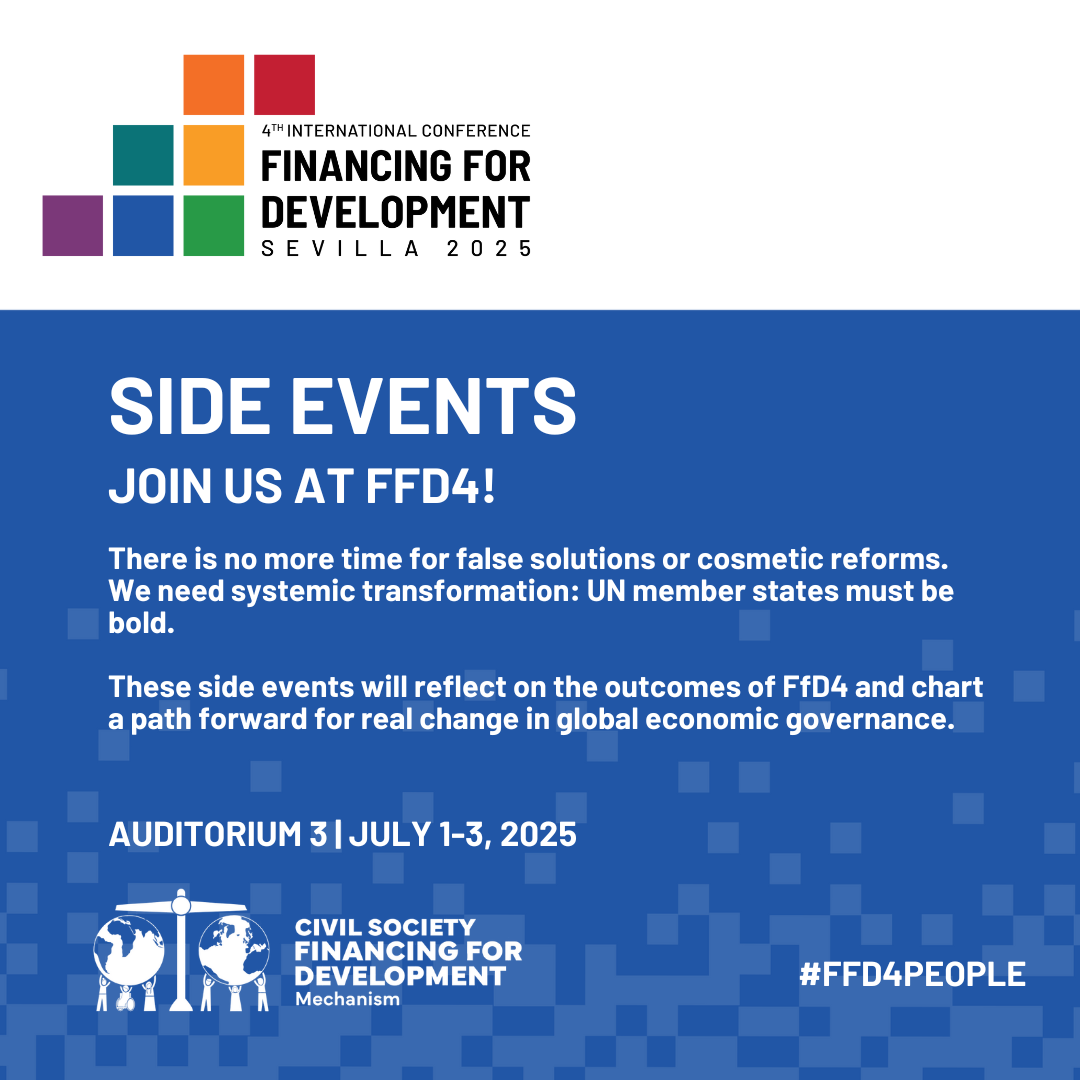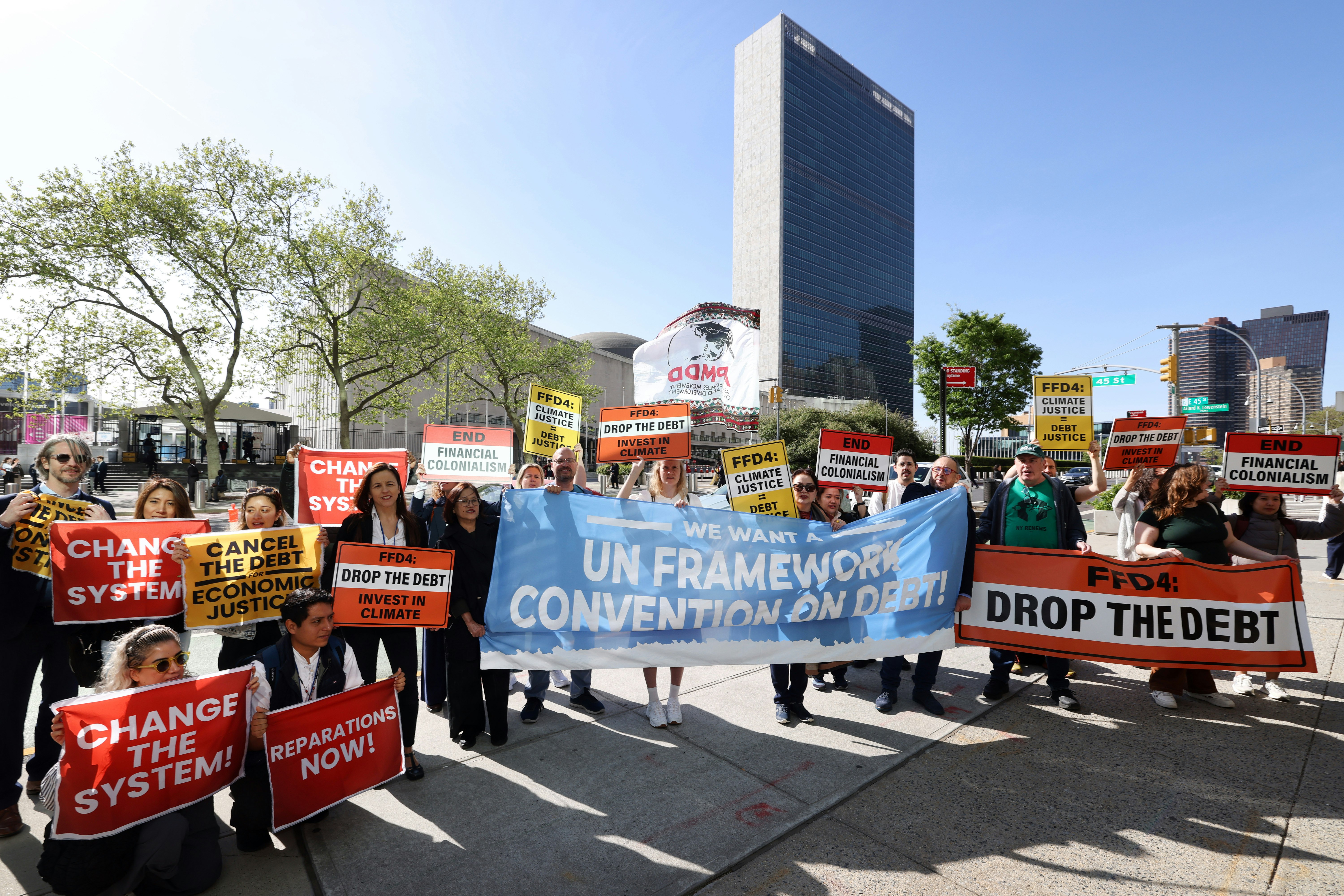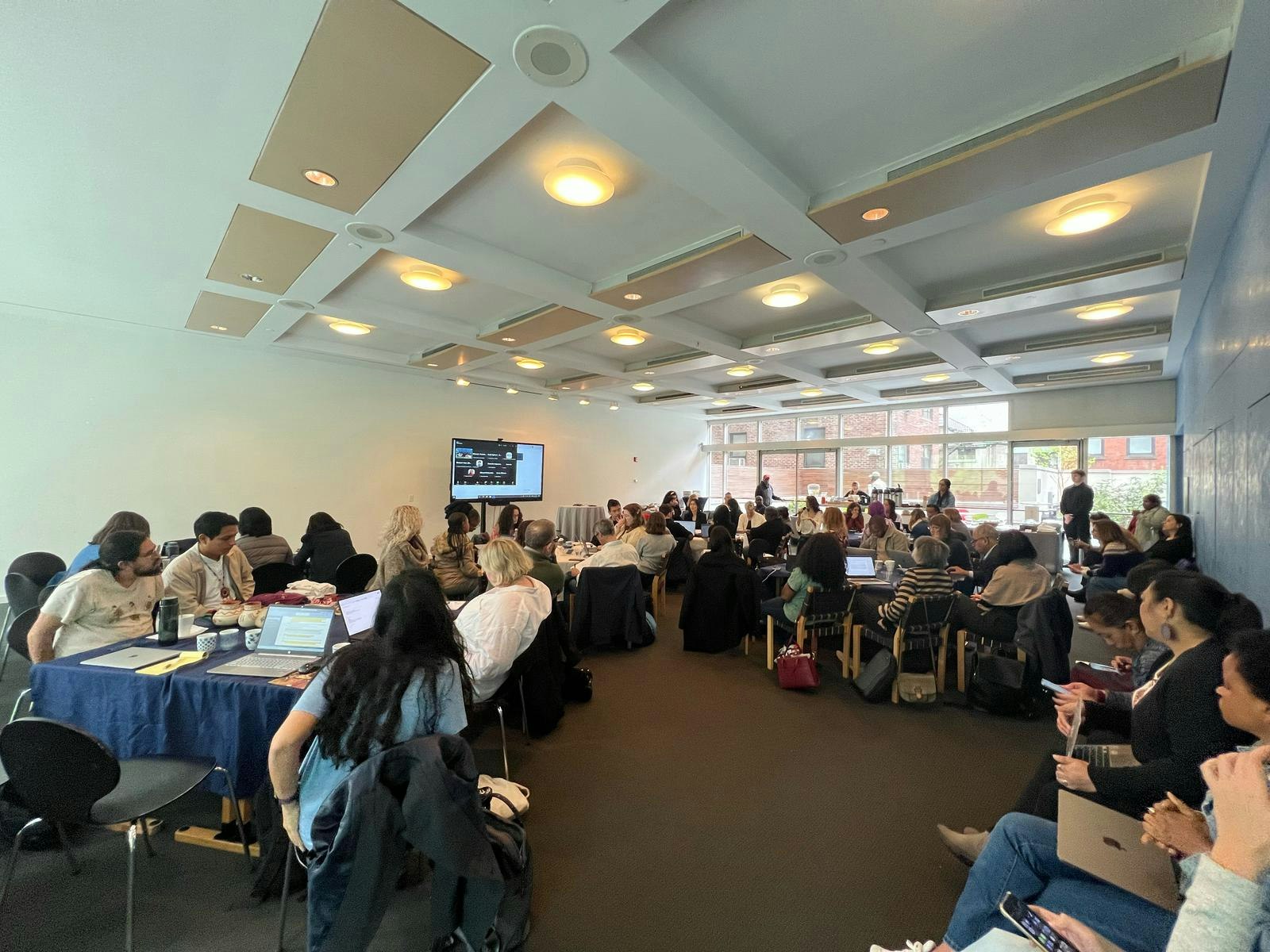
World leaders continue to kick the can down the road on debt reform
World leaders failed to seize an opportunity for vital reform of the international debt architecture when they met yesterday (March 29) at the UN.
Despite the limitations of the G20’s Debt Service Suspension Initiative (DSSI), heads of state and the world’s most powerful financial institutions continue to stick to it doggedly, together with its Common Framework, even though they exclude most middle-income countries and fail at binding private creditors’ participation. As the Argentinean president stated yesterday, there can’t be a global recovery when there are countries excluded from the solutions.
Jean Saldahna, Director of the European Network on Debt and Development (Eurodad), said: “We welcomed calls by Jamaica and Argentina for fundamental reform of debt architecture and the need for a multilateral framework for debt restructuring. But they were lone voices as other powerful players continued to back the status quo, kicking the can on debt reform further down the road. This will have disastrous effects for people in the Global South, who are being roundly failed by the DSSI as the Covid-19 pandemic continues to destroy lives.”
The meeting was called by the United Nations Secretary-General António Guterres, together with the Prime Minister of Canada, Justin Trudeau, and the Prime Minister of Jamaica, Andrew Holness. It was intended that world leaders would discuss the international debt architecture and liquidity as part of the Financing for Development in the Era of COVID-19 and Beyond Initiative (FfDI). However, decisions on global issues such as sovereign debt were once more left to exclusive membership clubs dominated by lenders, such as the G20, and not under multilateral and democratic forums such as the UN. Rich countries are continuing to prioritise their own power over global solidarity, leaving many people behind.
Patricia Miranda, Advocacy Coordinator at the Latin American Network for Economic and Social Justice (Latindadd), said: “A multilateral framework under the UN is the only way to resolve the crippling debt crises affecting the world’s poorest. This is the only way to ensure debt cancellation in a fair and orderly fashion, where developing countries have a seat at the table. This would ensure a future of responsible lending and borrowing together with regulation based on human rights and gender justice.”
Addressing the event, Lidy Napcil, Coordinator of the Asian Peoples’ Movement on Debt and Development (APMDD), said: “Throughout decades of exploitation, rich countries accumulated a social and ecological debt owed to the people in developing countries which is higher than our financial debt. Today these same rich nations fail to deliver the system changing solutions that we need, including immediate debt cancellation by all lenders for all countries in need”.
Jason Rosario Braganza, Executive Director at The African Forum and Network on Debt and Development (AFRODAD) said: “There is an opportunity here to walk and chew gum that global leaders and CSOs must not miss if we are going to build forward together. The rhetoric needs to be matched by tangible political will to redress the power imbalances that isolate poor countries in favour of private finance. We call for people to be placed at the centre of the recovery and not profits. This is the only way out of the pandemic with minimal damage and a lost decade on socio-economic outcomes.”
Civil society organisations across the world are calling for a new Financing for Development Conference – Monterrey+20 – where the issue of global economic architecture is firmly on the table. As the newly appointed Director-General of the WTO, Ngozi Okonjo-Iweala, stated during the meeting, “lost decades are a policy choice”. As the world needs meaningful leadership and actions, the policy choice for the rich country leaders seems to be, for now, not to rise to the occasion, condemning millions to poverty.
Notes:
This press release by the Civil Society FfD Group has been facilitated by Eurodad, APMDD, Afrodad, Latindadd and SID.
UN – Civil Society Meeting on International Debt Architecture and Liquidity was held on 23 March 2021. More information on this meeting can be found here: https://csoforffd.org/2021/03/19/civil-society-meeting-on-international-debt-architecture/
Related Updates


